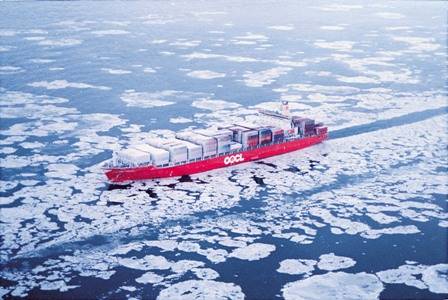The International Maritime Organization (IMO) today adopted the Polar Code aimed at regulating shipping in Polar Regions. Several environmental groups have criticized the measures for not going far enough to protect the Arctic and Antarctic environments, arguing that while the new code is a positive step forward, it is insufficient to properly protect Polar environments from the anticipated increased levels of shipping activity.
The Polar Code is due to enter into force on January 1, 2017, with further negotiation on pollution prevention and other vessels (including fishing vessels) taking place in May 2015 and 2016 respectively.
One concern expressed includes the failure to phase out the use of heavy fuel oil, though it is already banned in Antarctica. Sue Libenson, Pacific Environment, said, “While the Polar Code is a good step at recognizing the special risks of Arctic shipping, it still fails to directly address the highest potential risk of a heavy fuel oil spill.”
John Kaltenstein, marine policy analyst with Friends of the Earth U.S., added, “The Polar Code doesn’t do nearly enough to tackle substantial risks posed by shipping: use of noxious heavy fuel oil in the Arctic, vessels operating with inadequate ice-strengthening and structural stability, and disturbances of wildlife, to name a few.”
While the code includes requirements for ships to avoid marine mammals such as whales and walruses, it fails to consider seabird colonies.
The code will contain regulations requiring that ship operators limit entry into ice according to the ability of their ship to resist ice pressure, but concerns remain due to the fact that non-ice strengthened ships will still be allowed to operate in ice covered waters.
“We have concerns that lessons are not being learned from recent shipping incidents, and Polar Code's adoption will do little to reduce risks to the Antarctic environment,” said Sian Prior, shipping advisor to the Antarctic and Southern Ocean Coalition. "The Polar Code should demand that ships sailing in Antarctic waters are adequately strengthened and stabilized for dealing with ice collisions, that they report their positions on a regular basis to a centralized system, and that they are routed away from important wildlife sites, such as bird nesting colonies, unless strict wildlife watching protocols are enforced.”




